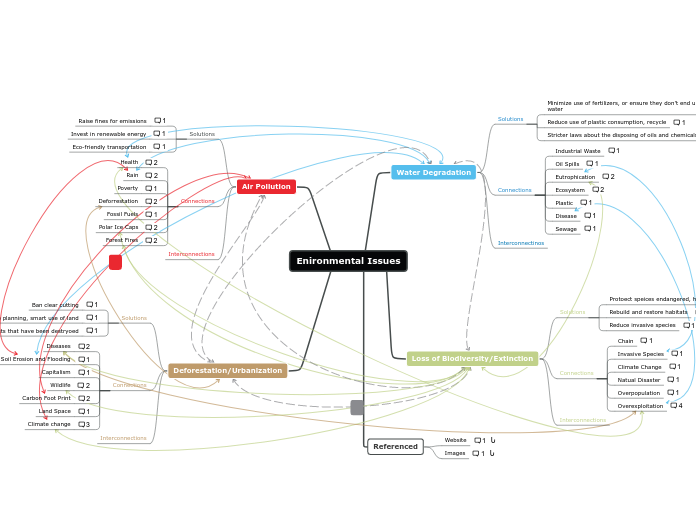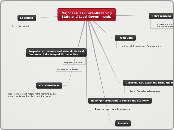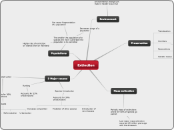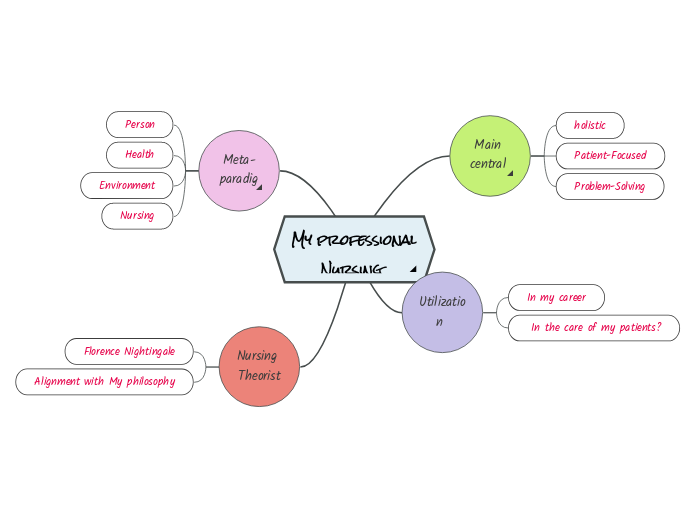Enironmental Issues
Deforestation/Urbanization
Climate change
Tropical rainforests promote a cycle of evaporation and rain allowing for the water to circulate and regulate the temperature and air. By cutting these trees down the forests the overall climates could be affected for example, could potentially result in dryer and even hotter climates for places near the tropics. The change in climate could possibly lead to natural disasters, drought and other big issues.
When trees are cut all the CO2 they contained is back into the atmosphere contributing to air pollution
This destroys animals habitats killing entire ecosystems and leaving the organisms with no where to live
Land Space
Between 1990 - 2016 the world lost 1,300,000 km² of forests, the same size of South Africa. Often trees are put in order for road expansion, housing and other. Instead of building taller buildings and using less space they build multiple houses and developing a stable living environment requires a lot of space. To build a neighborhood there is a lot of other necessary utilities such as hospitals, schools, and these plus the other homes require a lot of land.
Carbon Foot Print
When trees undergo the process of photosynthesis they hold a CO2 in them releasing clean air, oxygen for us and animals to breathe and survive improving the air quality. By clear cutting a plethora of trees all the CO2 they have stored in them is released back into the atmosphere only increasing our carbon footprint and contributing to the heating of the earth. Tropical deforestation is the 2nd largest contributor to climate change.
releases CO2 and contributes to air pollution
Wildlife
The overexploitation of rainforests makes it difficult for scientists to replant a new ecology to help the wildlife thrive. 70% of the earth’s land animals and plants depend on forest for the forest as their habitats. In addition, it is where the principal source of food organisms and henceforth are unable to survive without trees and the shelter and food they provide.
Animals need forrests as shelter, to provide them food, with out it they can not survive
Capitalism
The cutting of a large amount of trees in areas of poverty is often to convert it to cropland or farmland for livestock to support their livelihood and meet their needs to survive. Furthermore in the year of 2030 there may only be 10% of rainforests left due to the deforestation done by big companies. This shows that trees are cut in order for some sort of profit and with the growing culture of capitalism this will only continue to get worse in the future
Soil Erosion and Flooding
Deforestation can lead to soil erosion and flooding. They hold and require more water than farms or grasslands, however with less trees the soil is able to hold less water which can end up accumulating in the ground creating floods. Moreover, without forests top soils(usually full of nutrients) would erode and be washed away without the trees protecting them and the land will degrade and be left barren and deemed unusable and prone to flooding.
Diseases
Deadly diseases have greater chances of emerging as a result of deforestation because deforestation indirectly results in an incline in human contact with wildlife. Exposure to wildlife can lead to deadly diseases including SARS and Ebola, a parasite caused marlia, bats have caused viruses, and more.
Diseases also effect wildlife and can put them in danger, if diease continues to spread there will be a massive population decline
Replanting forrests that have been destryoed
Although we have cut a lot of forrests restoration is still a possibility. We can plant trees and remake forrests
Land use planning, smart use of land
Instead of taking up a lot of room we could plant upwards, by planning taller buildings they take up less space on the ground and use up less land.
Ban clear cutting
Clear cutting results in a LARGE amount of trees all being cut at once, they are cut to the point they can't regrow. If we ban this less trees would be cut because it would be illegal to cut them that many at a time.
Air Pollution
Forest Fires
Wildfires contribute to air pollution through the release of large amounts of carbon dioxide, black carbon, brown carbon, and ozone. The fire put large amounts of carbon and the added burning of tree will release more CO2. By putting this much carbon in the air it contributes to climate change by worsening the air quality
Completly destroys habitat, might kill animals living in it
Polar Ice Caps
Air pollutants have indirect results when they cause climate change, such as greenhouse gases, heat waves and extreme temperatures. The warming of temperature has gradually melted the polar ice caps. This affects the arctic species inhabiting them including polar bears which are now endangered because their habitat is disappearing and this affects every other species living there. Moreover, the melting of the ice will directly increase the global sea level. If sea levels get too high it can potentially result in the sinking of entire cities near water.
The dissapearance of the polar icecaps would be lead to the endangerment of species or extinction of many that are aldready secies
Fossil Fuels
A big issue is the use of fossil fuels. This is a renewable energy source that is not sustainable and harmful to our environment and air quality. Similar to factories the combustion of fossil fuels creates toxic gases such as carbon monoxide, this is a very dangerous gas. Doing this will overall heat up our atmosphere and if you were to be in direct contact with the gas, it could harm you. Moreover, this resource will eventually run out and is not a long term energy source.
Deforrestation
Deforestation is another principal cause of air pollution because often they absorb gases in the atmosphere such as carbon monoxide or carbon dioxide and in return providing us with oxygen. By cutting the tree all the gas it absorbed back into the atmosphere, therefore cutting down a big amount will have a big impact on the air quality as it will be putting these toxic gases back.
Deforestation
Poverty
Those living in poverty suffer even more than those in developed countries due to their lack of resources. There were approximately 4.2 million premature deaths in 2016 due to the quality of the air in places of low to middle income. Because certain countries might not have access to healthcare if they ever catch a disease or require medical attention they won’t be able to. Their economy would also not be able to support new innovative technologies that emit less harmful gasses.
Rain
Big industrial factories are responsible for emitting chemicals such as sulphur dioxide and nitrogen oxide often from fossil fuels or the burning of coal. When these pile up in the atmosphere and react with the water it can form diluted solutions of acid resulting in dangerous acid rain. Moreover, it can affect the schedule of the rain in that it will rain intensely during concentrated times, or other places will experience drought.
Can effect rain patterns such as drought, acid rain, or excessive rain
Health
Air pollution can indirectly cause skin damage or cancer due to the increasing exposure of ultraviolet light rays on skin. With the ozone getting thinner and thinner due to greenhouse gases including carbon dioxide, nitrous oxide, the layer filters are less effective allowing more rays to enter the atmosphere. In addition to skin cancer being exposed to other pollutants puts you at a 40% higher risk of contracting cancer, heart disease, stroke, and respiratory disease.
Water may not be clean for us to drink and can result in us getting diseases and other other health issues. Water is also crucial to our health.
Eco-friendly transportation
We can encourage people to carpool or travel using public transportation to reduce emissions. We can also try to attempt to shift people into using electrical vehicles or ones that result in less CO2 and NO2 that heat up our atmosphere
Invest in renewable energy
Although investing in renewable sources might be more coslty, in the long run it is better for the earth
Raise fines for emissions
By raising fines for big corperate companies they will be less likely too emit more gases than they are allowed because if they exceed their set amount they will be charged more
Referenced
Images
https://www.google.com/search?q=water+pollution&rlz=1C1CHBF_enCA822CA822&sxsrf=ALeKk0126McuxnPLEAnVcApmkG9Fi8s3cg:1595456891944&source=lnms&tbm=isch&sa=X&ved=2ahUKEwilybGK9OHqAhU5lXIEHeNfBxEQ_AUoAXoECBIQAw&biw=1440&bih=818&safe=active&ssui=on#imgrc=MyVbyjd76N62SM
https://www.google.com/search?q=overfishing&tbm=isch&ved=2ahUKEwi4hNiM9OHqAhUEOa0KHdVZARkQ2-cCegQIABAA&oq=overfishing&gs_lcp=CgNpbWcQAzIECAAQQzIECAAQQzIECAAQQzIECAAQQzICCAAyAggAMgIIADICCAAyAggAMgIIADoHCCMQ6gIQJzoECCMQJzoHCAAQsQMQQzoFCAAQsQM6CAgAELEDEIMBUM3lFFif9xRguvsUaAFwAHgAgAFtiAHvB5IBAzguM5gBAKABAaoBC2d3cy13aXotaW1nsAEKwAEB&sclient=img&ei=gL0YX7jELoTytAXVs4XIAQ&bih=818&biw=1440&rlz=1C1CHBF_enCA822CA822&safe=active&ssui=on#imgrc=AGoev2QoXd8mIM
https://www.google.com/search?q=water+pollution&tbm=isch&ved=2ahUKEwjZzOWG-eHqAhWGE6wKHeSkBWMQ2-cCegQIABAA&oq=water+poll&gs_lcp=CgNpbWcQARgAMgQIIxAnMgIIADICCAAyAggAMgIIADICCAAyAggAMgIIADICCAAyAggAOgcIIxDqAhAnOgQIABBDOgcIABCxAxBDOgUIABCxA1CMkQRY6pwEYLenBGgBcAB4AIABXYgB1AaSAQIxMJgBAKABAaoBC2d3cy13aXotaW1nsAEKwAEB&sclient=img&ei=ssIYX9mrI4ansAXkyZaYBg&bih=818&biw=1440&rlz=1C1CHBF_enCA822CA822&safe=active&ssui=on#imgrc=NDA1g1gyZGI84M&imgdii=kEfuGmHWMtMsWM
https://www.google.com/search?q=water+pollution&rlz=1C1CHBF_enCA822CA822&sxsrf=ALeKk0126McuxnPLEAnVcApmkG9Fi8s3cg:1595456891944&source=lnms&tbm=isch&sa=X&ved=2ahUKEwilybGK9OHqAhU5lXIEHeNfBxEQ_AUoAXoECBIQAw&biw=1440&bih=818&safe=active&ssui=on#imgrc=nIG6NLgIcoXtOM
https://www.google.com/search?q=coral+bleaching&tbm=isch&ved=2ahUKEwjU-JCp-eHqAhVGS60KHSukCkgQ2-cCegQIABAA&oq=coral+bleaching&gs_lcp=CgNpbWcQAzIECAAQQzICCAAyAggAMgIIADICCAAyAggAMgIIADICCAAyAggAMgIIADoHCCMQ6gIQJzoECCMQJzoHCAAQsQMQQzoFCAAQsQM6BAgAEANQoYsFWNqsBWD2rQVoAXAAeACAAXqIAZkLkgEDOS42mAEAoAEBqgELZ3dzLXdpei1pbWewAQrAAQE&sclient=img&ei=-sIYX9STJMaWtQWryKrABA&bih=818&biw=1440&rlz=1C1CHBF_enCA822CA822&safe=active&ssui=on#imgrc=DLFjiM1ycSfSbM
https://www.google.com/search?q=biodiversity&tbm=isch&ved=2ahUKEwi4hNiM9OHqAhUEOa0KHdVZARkQ2-cCegQIABAA&oq=biodiv&gs_lcp=CgNpbWcQARgAMgQIABBDMgQIABBDMgQIABBDMgQIABBDMgQIABBDMgQIABBDMgQIABBDMgQIABBDMgQIABBDMgQIABBDOgcIIxDqAhAnOgQIIxAnOgIIADoHCAAQsQMQQ1C3zAFYkN4BYN_pAWgBcAB4AIABZ4gBrASSAQM0LjKYAQCgAQGqAQtnd3Mtd2l6LWltZ7ABCsABAQ&sclient=img&ei=gL0YX7jELoTytAXVs4XIAQ&bih=818&biw=1440&rlz=1C1CHBF_enCA822CA822&safe=active&ssui=on#imgrc=orwO0C1A5YdlqM
https://www.google.com/search?q=clearcutting&tbm=isch&ved=2ahUKEwikpfjo9eHqAhWFY60KHUofDnYQ2-cCegQIABAA&oq=clearcutting&gs_lcp=CgNpbWcQAzICCAAyAggAMgIIADICCAAyAggAMgIIADIGCAAQBRAeMgQIABAYMgQIABAYMgQIABAYOgcIIxDqAhAnOgQIIxAnOgQIABBDOgcIABCxAxBDOgUIABCxAzoICAAQsQMQgwFQ-f4KWJCOC2DOkAtoAXAAeACAAfABiAH5DJIBBTYuNC4ymAEAoAEBqgELZ3dzLXdpei1pbWewAQrAAQE&sclient=img&ei=Tr8YX6TGKIXHtQXKvriwBw&bih=818&biw=1440&rlz=1C1CHBF_enCA822CA822&safe=active&ssui=on#imgrc=YtMBUoRFvmFYpM
https://www.google.com/search?q=deforrestation&tbm=isch&ved=2ahUKEwj4prDv9uHqAhVQja0KHSA6AKsQ2-cCegQIABAA&oq=deforrestation&gs_lcp=CgNpbWcQAzICCAAyAggAMgYIABAKEBgyBggAEAoQGDIGCAAQChAYMgYIABAKEBgyBggAEAoQGDIGCAAQChAYMgYIABAKEBgyBggAEAoQGDoHCCMQ6gIQJzoECCMQJzoFCAAQsQM6CAgAELEDEIMBUJ9SWJFvYNRxaAFwAHgAgAHJAYgB5guSAQU3LjYuMZgBAKABAaoBC2d3cy13aXotaW1nsAEKwAEB&sclient=img&ei=aMAYX_jSJNCatgWg9IDYCg&bih=818&biw=1440&rlz=1C1CHBF_enCA822CA822&safe=active&ssui=on#imgrc=GpEL5SbTRjtwnM
https://www.google.com/search?q=urbanization&tbm=isch&ved=2ahUKEwjcmJD39uHqAhVOZawKHZjTCD4Q2-cCegQIABAA&oq=urbanization&gs_lcp=CgNpbWcQAzICCAAyAggAMgIIADICCAAyAggAMgIIADICCAAyAggAMgIIADICCAA6BwgjEOoCECc6BAgjECc6BQgAELEDOggIABCxAxCDAVChjxBYz6QQYKSmEGgBcAB4AIABZYgBgQiSAQQxMS4xmAEAoAEBqgELZ3dzLXdpei1pbWewAQrAAQE&sclient=img&ei=eMAYX9z8M87KsQWYp6PwAw&bih=818&biw=1440&rlz=1C1CHBF_enCA822CA822&safe=active&ssui=on#imgrc=P5qhPxrXFJaR5M&imgdii=H2TIYvxFPTEXcM
https://www.google.com/search?q=air+pollution&tbm=isch&ved=2ahUKEwjFy_av-OHqAhUM-KwKHS8dBFAQ2-cCegQIABAA&oq=air+pollution&gs_lcp=CgNpbWcQAzIHCAAQsQMQQzICCAAyAggAMgIIADICCAAyAggAMgIIADICCAAyAggAMgIIADoHCCMQ6gIQJzoECCMQJzoECAAQQzoFCAAQsQNQ_1hY1t8BYMjhAWgDcAB4AIABcIgB0wuSAQQxNS4ymAEAoAEBqgELZ3dzLXdpei1pbWewAQrAAQE&sclient=img&ei=_MEYX8XdGIzwswWvupCABQ&bih=818&biw=1440&rlz=1C1CHBF_enCA822CA822&safe=active&ssui=on#imgrc=glqDUQgh_Z71tM
https://www.google.com/search?q=heart+disease&tbm=isch&ved=2ahUKEwi82IyB-eHqAhUR_qwKHWzIAeoQ2-cCegQIABAA&oq=heart+disease&gs_lcp=CgNpbWcQAzIECAAQQzICCAAyAggAMgIIADICCAAyAggAMgIIADICCAAyAggAMgIIAFC4UFi4UGCIUmgAcAB4AIABYYgBYZIBATGYAQCgAQGqAQtnd3Mtd2l6LWltZ8ABAQ&sclient=img&ei=psIYX7ztJpH8swXskIfQDg&bih=818&biw=1440&rlz=1C1CHBF_enCA822CA822&safe=active&ssui=on#imgrc=ZKNObVV7eqoEHM
Website
RinkeshA true environmentalist by heart ❤️. Founded Conserve Energy Future with the sole
motto of providing helpful information related to our rapidly depleting environment. Unless you strongly believe in Elon Musk‘s idea of making Mars as another habitab. (2020, May 10). Top 25 Brutal Environmental Concerns That You Desperately Need To Know. Retrieved July 22, 2020, from https://www.conserve-energy-future.com/top-25-environmental-concerns.php
Technology, I. (n.d.). What Are the Biggest Environmental Concerns? - Water. Retrieved July 22,
2020, from https://www.envirotech-online.com/news/water-wastewater/9/breaking-news/what-are-the-biggest-environmental-concerns-water/47575
Causes, Effects and Solutions for Biodiversity Loss. (2020, July 12). Retrieved July 22, 2020,
from https://environmental-conscience.com/causes-effects-solutions-for-biodiversity-loss/
May 14, 2. (2020, June 22). Water Pollution: Everything You Need to Know. Retrieved July 22,
2020, from https://www.nrdc.org/stories/water-pollution-everything-you-need-know
(2020, June, 22 ). What is Biodiversity . Conserve Energy Future. Retrieved July
22, 2020, from https://www.conserve-energy-future.com/what-is-biodiversity.php#:~:text=Reason%20for%20Loss%20of%20Biodiversity&text=Habitat%20destruction%20is%20a%20major,more%20affected%20by%20habitat%20reduction
Loss of Biodiversity/Extinction
Interconnections
Overexploitation
The overexploitation of animals can push them to the point of extinction. For example overhunting, overfishing, excessive logging, illegal trade and more. More than 25% of fisheries worldwide overfish putting species including as blue fin tuna at risk. By indulging in the listed activites above we are not allowing the animals to replenish and their population will decrease. 80% of people use medication that comes from pants on the environment, should not overuse.
If we over use medication we won't have acess when we need it
Can help cure diseases caused by contaminated water
Require medication for diseases
Overpopulation
Destruction of habitats and endangerment of species is a result of human overpopulation, we use area to build housing and building for our benefit. They need for space, shelter, stable food and water source, however, due to the destruction of habitat for example deforrestation they won't have the protection of their homes.
Natual Disaster
As a result of natural ecological disasters, such as wildfires, floods and volcanic eruptions, it could cause species to decline. Without shelter and even just the conditions of the disaster could wipe out the population.
Climate Change
Pollution caused by humans can and will most probaly lead to the depletion of biodiversity. The pollution can interfere with the health of vulnerable species. This can result in the heating of the ozone layer worsening global waring. Although some species can attempt to flee some spieces like coral reefs are unable to migrate and they will continued to be bleached due to overheating. It is said that in 20-40 years most will disappear.
Invasive Species
The introduction of invasive species to new environments will inevditably have a big effect on the whole ecosystem. The new species will be competing with the native species for food and habitat. If there is not enough resoucres to sustain both the invasive speicies will overtake the native triggering a decrease in population.
Chain
For most species, habitat loss and destruction of ecosystems due to natural disasters or other limits the food supply and living space. The animals who can not adapt are often struggling to survive and usually washed away. If there is a decrease in one species it will eventually effect those around it that depend on it for their survival effecting the whole food chain.
Reduce invasive species
Remove invasive species therefore the native one has less competition and a decreased chance of going extinct. Prevent inasive from enetering new ecosystems in the first place
Rebuild and restore habitats
Build or restore habitiats that will allow for the endangered species to thrive and help it's population once again stabalize
Protoect speices endangered, hunt or fish susatinable
Protect specific areas of land or set up breeding programs to help repopulate species. Don't over fish or over hunt, only take as much as you so the resouce has time to replenish
Water Degradation
Interconnectinos
Connections
Sewage
Sewage water is usually treated with chemicals before being released into the ocean or other body of water. Again the chemically treated sewage water may contain harmful chemicals or bacteria that could be the cause of health issues for all living beings
Disease
Unclean or unsafe water is dangerous, in 2015 it was responsible for 1.8 million deaths in 2015. Furthermore, it sickened around 1 billion people and often diseases such as cholera, giardia, and typhoid spread through water even to wealthy nations. But it kills many people living in poverty as they don’t have access to safe water and homes are mostly near polluting industries.
Plastic
Due to the human population there is approximately 150 million metric tons of plastic waste in our marine environments. A copious amount of the plastic we use is either not biodegradable or takes a long time to decompose, and often ends up in our water, killing a big part of our sealife.
Ecosystem
Ecosystems consist of multiple different organisms that depend on each other. Each is equally important, if one is affected then the whole chain could potentially collapse indirectly impacting us as humans. Disappearance of a species including a type of bacteria, fungi, plants, and animals will ultimately affect all of the living beings crashing the ecosystem.
When one species is impacted the whole ecosystem might colapse in a chain reaction lowering the biodiversity
Eutrophication
The process of eutrophication starts with the excessive runoff of minerals mainly phosphorus and nitrogen from farms or other. Often these fertilizers are used in agriculture to help plants grow to their full potential, however when it ends up in the water algae blooms grow out of control. The algae uses all the oxygen in the water to continue growing killing the aquatic life inhabiting the water.
Eutrophication is aglae out competeing all other spiecies inhabiting the water for oxygen
Oil Spills
Oil spills can permanently damage water as once entering the water it won't dissolve producing long lasting issues in the area of the spill. This occurs when oil tankers have not been properly sealed and large amounts end up in water.
Industrial Waste
Industrial waste is the result of companies/factories draining harmful chemicals into freshwater such as lead, sulphur, mercury, and other nitrates contaminating the body of water putting humans and animals in danger.
Solutions
Stricter laws about the disposing of oils and chemicals
There should be more firm laws about companies that dump their chemical waste and trash into water
Reduce use of plastic consumption, recycle
Purchase reuseable products instead of single use ones therefore you have less waste and then there is a lower chance of it ending up in water, Reduce, Reuse Recycle
Minimize use of fertilizers, or ensure they don't end up in water
Either use less fertilizers and grow agriculture naturally or ensure you are not using them near a big body of water









